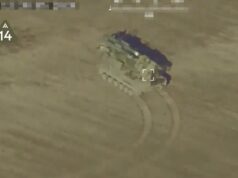During the INTERPOL General Assembly in Glasgow, INTERPOL Secretary General Jürgen Stock and National Crime Agency (NCA) Director General Graeme Biggar highlighted the growing complexity of global organised crime networks, stressing that despite major successes, crime syndicates are adapting with increasing sophistication.
They called for a renewed commitment to international collaboration, advanced resources, and proactive policies to combat the threats.
Reflecting on the challenges, Stock noted the dual nature of recent achievements and persistent threats. “We’ve seen incredibly successful examples of international police cooperation,” he stated, referencing significant drug seizures in ports like Rotterdam and Antwerp and thousands of arrests worldwide. However, he warned that while enforcement efforts have intensified, criminal organisations remain resilient. “Despite these successes, these groups are only getting stronger, more international, and more complex,” Stock explained, underscoring the need for sustained efforts.
Biggar addressed the increasing prevalence of cyber-attacks, particularly from Russian-speaking groups, who are often linked to ransomware and cybercrime syndicates. “A significant proportion of cyber attacks come from Russian-speaking cybercriminals,” he said, adding that while there are some ties to Russian intelligence, most attacks are financially driven. The NCA has made strides in countering these cyber threats, with Biggar noting recent successful global takedowns like the Blockbit ransomware group.
Yet he acknowledged the challenge of limited cooperation from Russian authorities, which he described as a significant barrier to effectively dismantling cybercriminal networks.
The discussion also focused on migration, with Biggar emphasising the role of geopolitical and economic factors that drive illegal migration, which organised crime networks exploit. “Migration networks cross borders easily, mirroring the transnational nature of today’s organised crime,” Biggar explained. The NCA, working closely with European partners, has prioritised tackling smuggling networks that enable illegal migration, calling for strategies that include both deterrence and cooperative enforcement across borders.
Finally, Stock cautioned about the increasing use of artificial intelligence by criminal groups. He highlighted that AI is enabling criminal operations at an “industrial scale,” including deep fakes, voice simulations, and fraudulent documentation, posing significant challenges for law enforcement agencies globally. “We are entering a new dimension of attacks against our communities, often from outside their jurisdictions,” he warned.
Stock and Biggar concluded with a call for an integrated approach, harnessing advanced technology and strengthened international cooperation to meet these emerging challenges head-on.













